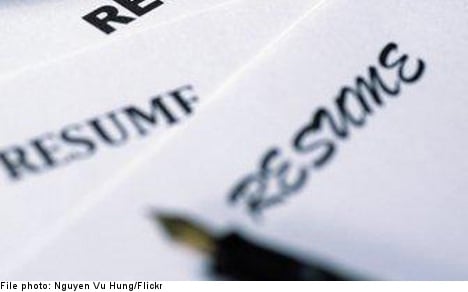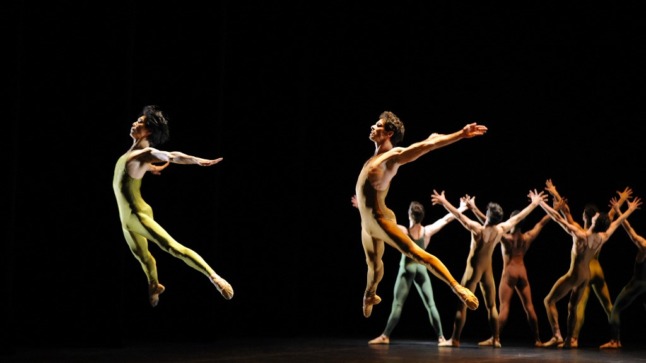Ovidiu*, a masters student, explains that after sending over 200 CVs in Sweden and receiving no responses, he decided to try another somewhat cheeky tactic.
“I’d heard that a guy called Pablo in the UK changed his name to Paul on his CV and found that more people responded to his applications – so I thought I’d try the same gimmick,” he told The Local.
“And it worked.”
The Romanian printed 40 CVs in Swedish – not specifying his nationality but pointing out that he had studied for two years at the Uppsala University.
On 20 of the documents he used his real name, and on the other 20 he used a random but very common Swedish name. He also changed the layout so it wasn’t noticeable at a glance that the CVs contained exactly the same information.
He then sent them out to 20 various companies in Uppsala, Gothenburg, Malmö and Stockholm. A large handful was sent to job recruitment agency Academic Work.
However, while the CVs with his real name all went unanswered, the 20 with the fictional Swedish name garnered 13 offers for an interview.
“It’s clear that they didn’t even bother reading the one with my real name,” Ovidiu lamented.
“They just saw a foreign name and didn’t open it. The jobs ranged from really basic work to jobs within the marketing sector that I was highly qualified for. It doesn’t make sense.”
Elin Frejd, PR Manager at Academic Work, had not heard of the case before and says that during her years at the company there has never been anything similar.
“This is shocking to hear – it shouldn’t be like this at all,” she told The Local upon learning of the story.
“We’ve had fantastic experiences with foreigners and often talk to our customers about the fact that we have a wide range of non-Swedes in our database.”
“Perhaps our customers are sometimes afraid of hiring someone who can’t speak Swedish, but at Academic Work we value the experience and knowledge that people bring from abroad.”
She also offered her apologies to the student.
“If this is true, I’m not especially proud of it and would encourage this man to come in to discuss it – perhaps we could help him.”
While Frejd explains that the database is often close to full and some jobs need to be filled quickly, she says the selection process should have meant that the student’s CV was recognized.
SEE ALSO: Click here for the latest listings for jobs in Sweden
Annika Höög, a case officer at Sweden’s Equality Ombudsman (Diskrimineringsombudsmannen, DO), says that she has never heard similar complaints either.
“We get a lot of complaints from non-Swedes for job discrimination when they’re applying for work,” she told The Local.
“But it’s very hard to prove in most cases. In Sweden, the reputation of employers towards foreigners can really vary. From my own experience, I can say that it seems to be more difficult for non-Swedes to find a job here than if they were in the UK or Canada for example.”
As to why, Höög can only speculate.
“Employers may just be more suspicious of foreigners here. We’ve had complaints from people before who’ve said they’ve had to move to other countries just to get job offers.”
Meanwhile, Ovidiu has been left scratching his head as to what to do next.
“I didn’t show up to any of the interviews in case what I did was illegal or something,” he told The Local.
“But the whole thing is really frustrating. Having a job in Sweden is being a member of an exclusive club rather than a work force.”
*Ovidiu is not the student’s real name.
Oliver Gee



 Please whitelist us to continue reading.
Please whitelist us to continue reading.
Member comments